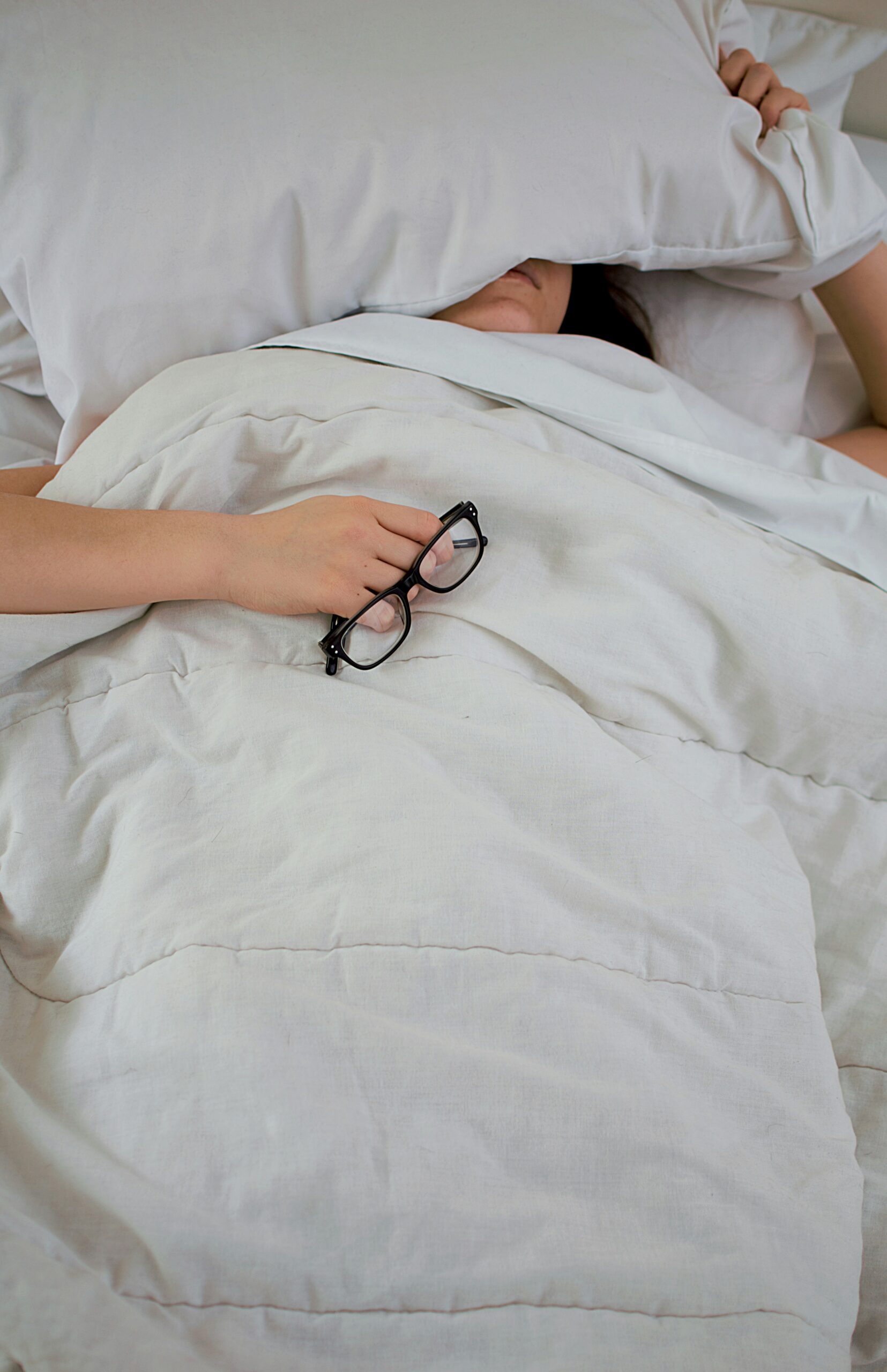We’ve all been there, lying awake in the middle of the night, mind racing like it’s got somewhere important to be. I remember going through a season a few years ago where I was really struggling with sleep. Maybe your sleep story sounds similar, or maybe it’s showing up a little differently. Either way, today I’m sharing some coaching specifically for those nights when worries, racing thoughts, or stress are keeping you up.
For me, I could fall asleep just fine. But, like clockwork, around 2:30 a.m., I’d be wide awake. My mind would go into overdrive, and no matter what I tried, I couldn’t fall back asleep. I’d lie there, staring at the ceiling, tossing and turning as the anxiety grew over how little sleep I was getting. It was a vicious cycle: the more I worried about not sleeping, the harder it was to actually get any sleep.
Now, before we dive into what helped me, I want to make it clear that I’m not a sleep expert. There are countless reasons why people struggle with sleep—health conditions, physical pain, various sleep disorders—but today, I’m focusing on stress, anxiety, and those pesky racing thoughts. If that’s your experience, here are three things not to do when you’re having trouble sleeping because of stress and racing thoughts.
1. Don’t Underestimate the Power of the Sun
Our circadian rhythm is incredibly important to the quality of sleep that we’re getting at night, and poor sleep can be directly related to how much sunlight you’re NOT getting during the day. Try your best to get into the sunshine close to when you get up and keep your sleep space as dark as possible at night. The hormones released from exposure to light and dark help balance your circadian rhythm and contribute to more restful and deep sleep.
2. Skip the Caffeine and Alcohol Before Bed
We all know that caffeine and alcohol can interfere with sleep, but it’s more than just a matter of staying awake. When we sleep, we want our bodies to be in the deepest parasympathetic state possible—the state where we feel safe, relaxed, and ready to rest. Both caffeine and alcohol disrupt this process, making it harder for your nervous system to regulate and fully shut off.
Try to limit caffeine to the morning hours and avoid alcohol within a few hours of bedtime. This gives your body time to metabolize it before you sleep. Even if you think that glass of wine helps you unwind, it could be preventing you from getting the deep, restorative sleep you need.
3. Don’t Panic Over Middle-of-the-Night Wake-Ups
If you’re like me, you might experience what’s called “middle-of-the-night” waking, where you get up to use the bathroom or just randomly wake up. It’s easy to start spiraling, thinking, “Oh no, here we go again—I’ll never get back to sleep.” But this kind of thinking can become a self-fulfilling prophecy.
Instead, try to reframe how you approach these wake-ups. When I woke up at 2:30 a.m., I’d tell myself, “Okay, I’m awake. No big deal.” I’d avoid bright lights, stay off my phone, and keep my environment calm and quiet. If I needed to get up, I did so without stressing. And you know what? Over time, I found it easier to fall back asleep.
4. Don’t Just Lie There—Do Something Calming
If you’ve been awake for 15-20 minutes and you’re still not back to sleep, don’t just lie there. When your thoughts are racing and your anxiety is creeping up, your body is likely in a sympathetic stress response. This means it’s perceiving some sort of threat, and lying still won’t convince your body otherwise.
Get up, but keep it low-key. Don’t turn on bright lights or check your phone, but maybe take a little walk around the house. Grab a sip of water, listen to a meditation or some calming music. You could even try shaking out some of that anxious energy—sometimes a little movement can help your body reset. Another option is to read, but stick to something boring or familiar under a dim, warm light. Once you feel drowsy, head back to bed.
I hope these tips help you find some relief on those restless nights. Sleep is crucial for our overall well-being, and if our kids are going to let us sleep, the last thing we need is our racing minds keeping us up. Remember, a calm and regulated nervous system is key. Give yourself permission to relax and do what you need to do to get back to sleep.
And if you’re still struggling, know that you’re not alone. Sleep challenges are incredibly common, especially for high-achieving women juggling all the things. But you’re doing better than you think, and sometimes just making a few adjustments can make a big difference. Sweet dreams!
Have a question you’d love Michelle to answer on the podcast? “Ask Michelle a Question.” Click this link, record your message, hit send, and I’ll answer it in a future episode!

+ show Comments
- Hide Comments
add a comment